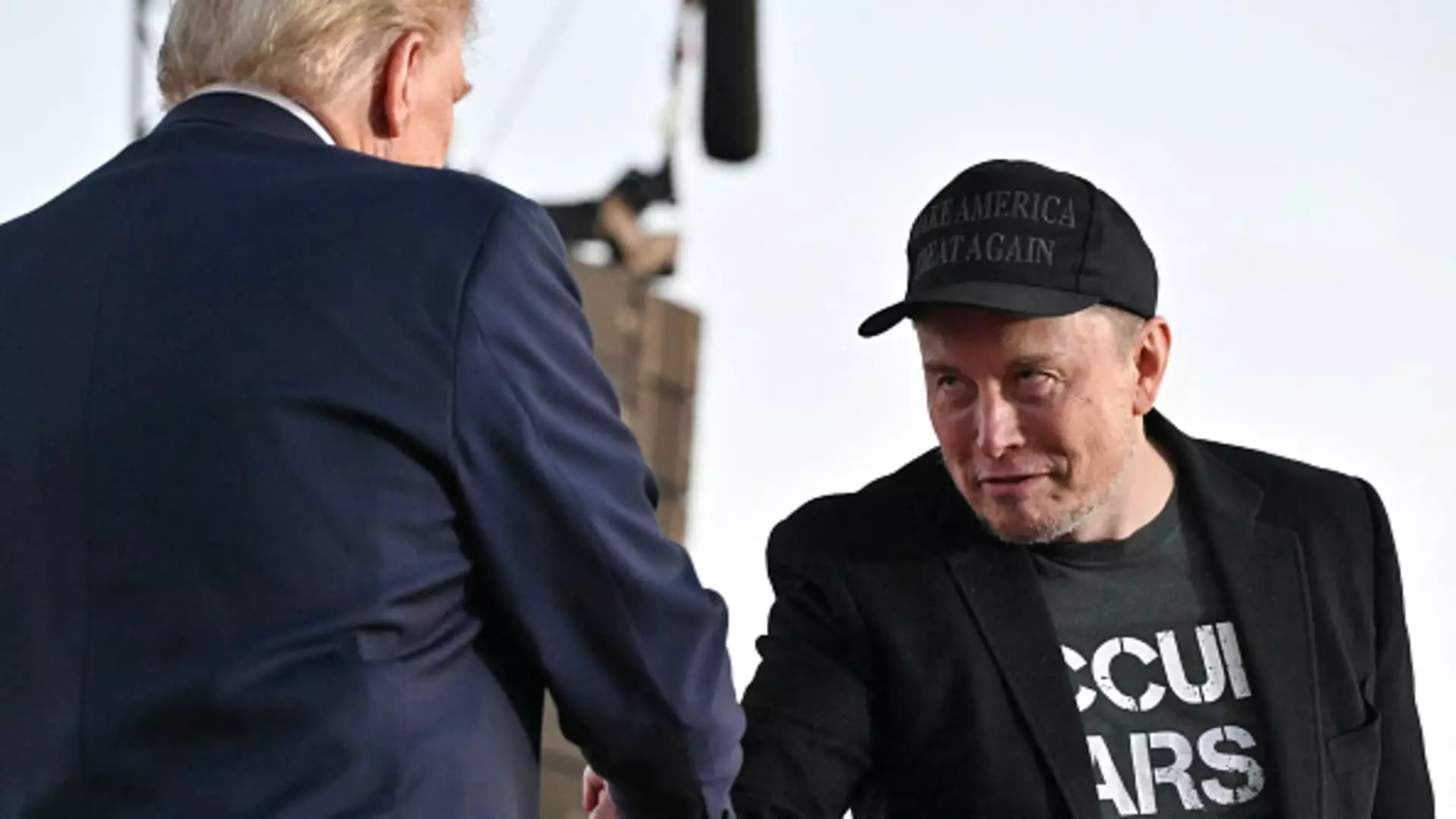In the wake of developments surrounding self-driving vehicle regulations in the United States, Tesla’s stock has experienced a noticeable surge. This increase can be attributed to emerging reports that President-elect Donald Trump’s transition team is prioritizing the establishment of a federal framework for overseeing autonomous vehicles within the Department of Transportation. This move, welcomed by industry proponents, carries significant implications for Tesla as it strives to secure its place in the competitive landscape of autonomous technology.
Tesla’s shares rose by an impressive 7.98% in premarket trading following the Bloomberg report, which cited unnamed sources regarding the transition team’s focus on self-driving regulations. The report, while needing further verification from credible sources, illustrates how closely aligned stock performance can be with prospective governmental policy changes. This observation raises questions about market behavior and investor sentiment, suggesting that expectations of favorable regulatory environments can substantially influence stock values. Companies like Tesla operate at the intersection of technology and intricate regulatory frameworks, and any indication that the government may streamline or enhance regulations tends to spark optimism among investors.
Elon Musk’s prominence in the business sector has translated into a robust connection with Trump, who previously served as president from 2017 to 2021. The relationship poses an intriguing dynamic for Tesla, as Musk has been a vocal advocate for Trump in previous elections. This connection is now yielding potential dividends for Tesla, especially in light of Trump’s recent decision to appoint Musk and other political figures to lead a new agency aiming to reduce bureaucratic inefficiency in government. The establishment of the Department of Government Efficiency (DOGE) could form a regulatory backdrop that favors innovative companies like Tesla, as it seeks to bypass cumbersome regulations that hamper technological advancement.
Despite the promising narrative around regulatory support, it is essential to note that Musk and Tesla face substantial challenges in delivering on their ambitious promise of fully autonomous vehicles. The concept of “robotaxis,” autonomously operating vehicles capable of transporting passengers without a driver presents not only technical hurdles but also regulatory ones. Currently, Tesla’s “Full Self-Driving” (FSD) technology, which still requires a human driver to oversee operations, has yet to achieve full autonomy. Musk’s assertion that Tesla aims to launch unsupervised FSD capabilities in select states by next year adds to the anticipation but also raises skepticism regarding the feasibility of these timelines.
The autonomous vehicle market is not solely dominated by Tesla; competitors such as Waymo have already initiated successful deployments of self-driving technology on public roads. This competitive landscape intensifies the need for Tesla to accelerate its development and roll out of autonomous systems. Should regulatory measures ease the path for Tesla, it may gain an edge in meeting consumer demands for safe, reliable self-driving options. However, it will need to navigate technological challenges and prove its capabilities in a market where others have already made substantial progress.
The overarching theme of these developments signifies a crucial moment not just for Tesla but also for the entire autonomous vehicle industry. The potential establishment of a federal framework for self-driving vehicle regulation could serve as a double-edged sword; while it may stimulate innovation and expedite Tesla’s plans, it also mandates stringent safety and operational standards that companies must adhere to. The industry stands at a crossroads, with regulatory guidance potentially paving the way for unprecedented advancements or, conversely, creating obstacles that could stifle innovation.
As Tesla navigates this complex interplay between regulation and technology, the outcomes of these developments will shape the future of autonomous vehicles in America. The stock market’s reactive nature to these changes will continue to underscore the importance of government policy in the tech sector, emphasizing the profound impact regulatory decisions have on innovation and corporate success.


Leave a Reply